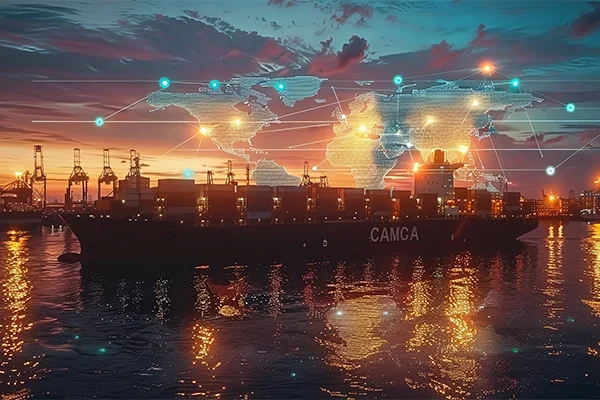For centuries, the sea has been the main route connecting peoples and cultures. Today, as you know, it remains essential, but with a new challenge: to play an active role in energy transition and global decarbonization. The shipping industry not only transports goods, but also leads innovation processes that set the course for the economy and sustainability across the globe.
The maritime supply chain in a globalized world
You will see that without ships, globalization would simply not be possible. Air transport has limited reach and land transport depends on borders and roads, but maritime transport offers unmatched capacity, efficiency, and scale.
The maritime supply chain connects factories, ports, and consumers in a matter of days or weeks, ensuring the movement of raw materials, fuels, and finished products. Those of you who work in this sector have witnessed how a delay or disruption in maritime logistics can have an immediate impact on entire markets.
Sustainability as a driver of change
Environmental pressure is stronger than ever. Maritime transport is responsible for around 3% of global CO₂ emissions, which is why the industry is taking concrete measures.
More and more shipping companies are incorporating alternative fuels, filtering systems, and energy efficiency solutions. In addition, research projects on hydrogen and green ammonia represent a historic opportunity to transform the sector into a less polluting industry. You know that adapting to these regulations is not an option, but the way to remain competitive.
Innovation and digitalization on board
Technology is also revolutionizing the way we sail. You will see that modern ships already include intelligent navigation systems, predictive maintenance, and real-time monitoring.
The Internet of Things (IoT), together with artificial intelligence, makes it possible to predict breakdowns, optimize routes, and reduce fuel consumption. These innovations not only reduce costs, but also improve safety on board and the well-being of crews.
The strategic role of ports
Ports are not just loading and unloading points: they are true international logistics hubs. You are well aware that a modern port must have advanced infrastructure, access to specialized supplies, and fast connections to land transport networks.
In addition, many ports are adopting “green” measures: electrification of docks, renewable energies, and digital processes to reduce bureaucracy and waiting times. All of this makes ports strategic players in the economy and key players in the ecological transition.
Training and adaptation of the naval workforce
Technological and regulatory change requires increasingly skilled professionals. You experience this firsthand: it is no longer enough to have experience in navigation; now you also need digital skills, knowledge of clean energy, and mastery of international regulations.
Continuous training has become a fundamental pillar. Academic institutions, shipyards, and supply companies are collaborating to create programs that guarantee a new generation of workers capable of taking on the challenges of the maritime future.
Conclusion
The naval sector is undergoing a period of profound transformation. You, who experience it every day, are the protagonists of an industry that connects the world, drives the economy, and is preparing to lead the energy transition.
Globalization, sustainability, and digitalization will mark the coming years, and those who commit to innovation will be at the forefront. Because the sea waits for no one, and the future of the naval sector is already sailing toward new horizons.

